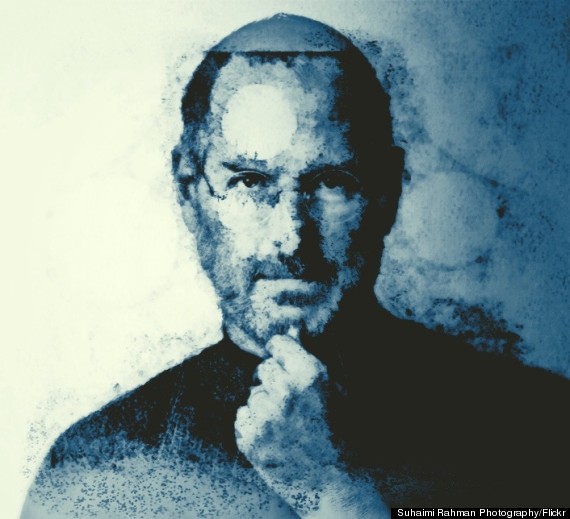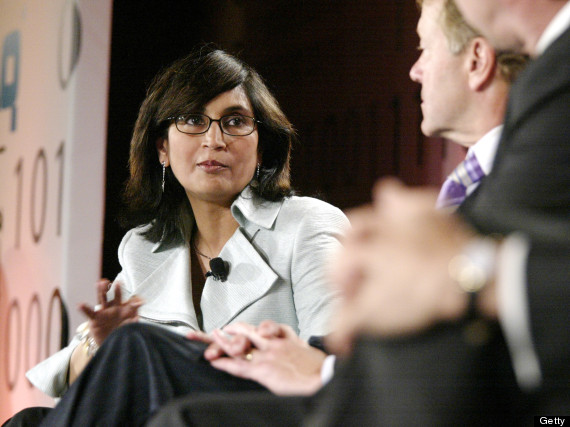타고난 리더의 7가지 습관 7 Habits Of Natural Leaders
성공적인 리더십에 대해서는 행복에 대한 의견만큼이나 여러가지 '비법'이 넘쳐난다.
아마존 사이트에만 27,000개의 리더십 관련 도서가 있으며, 매년 수천 건의 리더십 세미나가 개최되며, CEO들과 산업계 거물들의 리더십 사례를 분석하고 가르치는 웹사이트와 기사가 쏟아진다.
그러나 리더십은 기업의 CEO가 하나의 조직을 제어하는 것이 다가 아니다. 리더십은 자신의 인간관계와 사회, 동료 그리고 직원들에게 일관된 비전을 제시하고 같은 목표를 달성하도록 하나로 묶는 능력이다. 훌륭한 리더는 일에 참여하는 개개인이 최선을 다할 수 있도록 한다.
훌륭한 리더란 정확히 무엇을 뜻하는 걸까? 리더의 역할은 다양하다. 하지만 진짜 리더는 몇 가지 중요한 습관을 반복하면서 리더의 자질을 키운다.
타고난 리더의 7가지 습관은 아래와 같다.
1. 타고난 리더는 실패를 두려워하지 않는다
하버드 경영대 교수 로사베스 모스 캔터는 "승자와 패자의 차이는 어떻게 패배를 받아들이느냐에 있다"고 '하버드 비즈니스 리뷰'에 썼다.
'회복력', 즉 패배와 실패 그리고 목표를 달성하지 못한 좌절에 효과적으로 대처하는 능력이다. 이는 성공과 웰빙을 지향하는 누구에게나 중요한 부분인데 리더에겐 특히 필수요소다. 제대로 리더십을 발휘한다는 것은 실패를 감수한다는 것이다. 그런데 회복력이 강해야 위험하고도 피할 수 없는 난관에서 빨리 회복할 수 있다.
실패는 두 가지 방향으로 아주 강력하게 작용한다. 미래를 위한 가장 좋은 교훈이자 동기부여가 될 수도 있고, 아니면 앞으로 절대 모험을 하지 않도록 할 수 있다. (그로 인해 정말 큰 성공의 가능성은 사라지지만 말이다.) 훌륭한 리더는 이 부분을 잘 인지하기에 오히려 실패를 제대로 이용한다. 허핑턴포스트 편집장 아리아나 허핑턴은 리더를 이렇게 설명했다. "리더는 실패를 '다음 단계를 향한 징검다리'로 이용한다."
또한 아리아나 허핑턴은 훌륭한 리더는 "실패를 두려워하지 않는다"고 한다. 좋아하는 리더의 전기를 읽어보라. 실패담이 가득할 것이다.
아리아나는 "나는 2003년 주지사 선출에 실패했다. 그러나 그 과정에서 인터넷의 엄청난 파급력을 알게 되었다."라고 미국 경제 매거진 Inc닷컴과의 인터뷰에서 말했다. 또한 "나에 대해서도 많이 배웠다. 특히 소통하는 법, 사람들의 마음과 생각을 움직이는 법, 그리고 경청하는 법 말이다. 선거 활동을 하면서 배운 것들이 허핑턴포스트를 창업하는데 확실히 도움이 됐다."라고 대답했다.
2. 타고난 리더는 자신의 목표를 좇는다
"애플이 기본적으로 믿는 가치는 열정이 있는 사람들이 세상을 바꾼다는 것이다." 스티브 잡스는 1997년 광고 캠페인 'Think Different'를 준비할 때 내부 회의에서 이렇게 말했다. 또한 "세상을 정말로 변화시킬 수 있다고 믿는 사람들이 실제로 세상을 바꾼다."라고 말했다.
직원들 앞에서 연설하는 잡스의 모습을 보면서 우리는 그의 열정과 강한 목표의식을 느낀다. 당시 진행한 광고 캠페인은 역사적인 인물 중 위와 같은 욕구와 열정을 보인 이들을 소개하는 것이었다. 잡스의 말대로 "회사의 영혼을 건드리는" 작업이었다.
그는 "우리 회사 말고 이런 광고를 아무도 하지 못했을 것이다."라고 덧붙였다.
목적의식은 잡스와 같은 훌륭한 리더를 만든다. 의미 있는 제품을 생산하고 회사의 이익 수준을 넘는 목표를 달성하기 위해, 회사가 단순히 이익을 위해 존재하는 것이 아니라 영혼이 있는 어떤 것으로 생각한다. 그러면 모든 직원이 각자의 가능성을 최대 발휘할 수 있으며 더 큰 비전을 달성할 수 있다.
"목적의식이 있는 리더는 단지 운영을 하지 않으며 직원들의 영혼을 움직인다. 안건을 체결하기보다는 움직임을 이끌어 낸다. 그들이 지향하는 브랜드는 단순한 로고가 아니라 국기같이 애국심을 자극하는 상징이다."라고 인터넷 회사 브라이트 하우스의 CEO 이자 '목적에 대한 이야기: 더 튀는 브랜드, 더 좋은 회사, 더 오래가는 유산 만들기'의 저자인 조이 라이먼은 말했다.
또한 그는 "이런 리더들은 세상이 돌아가는 방식을 바꾸고자 한다. 스티브 잡스의 유명한 말을 빌리자면 그들은 '우주에 족적을 남기고자' 한다."라고 덧붙였다.
3. 타고난 리더는 헌신한다.
조직심리학자 아담 그랜트에 의하면 이 세상에는 세 가지의 부류의 사람이 있다고 한다. 헌신하는 사람(다른 이를 돕는 것이 우선인 사람), 받는 사람(자신의 이익을 우선으로 여기는 사람) 그리고 연결해주는 사람(다른 사람과 자신에게 동등한 이익을 추구하는 사람). 여러 연구 결과를 참고하고 일 년 동안 자체적인 조사를 시행한 결과, 헌신하는 사람이 성공할 확률이 가장 높다고 한다.
그랜트는 "헌신하는 사람은 다른 이들에게서 최고를 끌어낼 수 있다"고 비즈니스 인사이더 4월호에 말했다. 그는 "자신도 감지하지 못하는 가능성을 리더가 알아채는 것이다. 헌신하는 사람은 자신 곁에 있는 사람들을 숨은 다이몬드처럼 여기고 그들이 상상하지 못한 내면에 숨어있는 가능성을 달성할 수 있도록 투자한다."
헌신하는 사람은 또한 좋은 롤모델로서 조직의 성향까지 바꿀 수 있다고 그랜트는 설명한다. 즉 조직 구성원들이 서로 돕고 정보를 공유하는데 더 적극적이게 만들어 궁극적으로는 창조적이고 혁신적인 환경을 만드는 것이다.
4. 타고난 리더는 주기적으로 휴식을 취한다
야후 CEO 마리사 메이어, 버진그룹 회장 리처드 브랜슨, 미셸 오바마의 공통점? 성공한 리더들은 꼭 정기적으로 휴가를 간다. 한때 22,000명의 직원을 관리한 시스코(Cisco)의 CTO(최고 기술 책임자)인 패드마스리 워리어는 매일 명상의 시간을 갖고 매주 토요일마다 디지털 디톡스를 한다. 그러면 월요일 아침 출근할 때 한주의 업무를 맑고 침착한 마음으로 시작할 수 있다고 한다.
훌륭한 리더는 매우 야심이 크며 목표 달성을 위해 열심히 노력하는 것이 사실이다. 그렇지만 일 중독, 그에 따른 극도의 피로가 해롭다는 사실도 잘 이해하기 때문에 자신의 창의성과 예리함을 위해 휴식을 하며 재충전한다.
피로에 시달리고 잠도 제대로 못 자고 전화에 늘 달라붙어 있다가는 리더 역할을 효과적으로 하기 어렵다. 요가를 하든, 토요일마다 전자기기를 멀리 하든, 매년 휴가를 정기적으로 가든 중요한 것은 자신을 위한 시간을 가져야 예리한 정신력이 생기고 새로운 문제를 해결할 수 있다.
리처드 브랜슨 같은 경우, 휴가는 새로운 사업 아이디어로 이어질 수 있다고 한다.
브랜슨은 "휴가를 간다는 것은 반복되는 일상에서 차단된다는 것인데 새로운 장소 또 새로 만나는 사람들을 통해 기대하지 못했던 영감을 받을 수 있다"고 미국 경제지 안트러프러너에 말했다. "개인 사업가이든 기업인이든 사업을 어떻게 변화시킬까 하는 아이디어 없이 휴가에서 돌아온다면 무언가 바꿀 때가 되었다는 소리다."
5. 타고난 리더는 경청한다
빌 클린턴 전 미국 대통령은 성공의 간단한 비법이 있다고 했다. 그는 만나는 모든 사람에게 완전히 집중하고 경청한다고 한다. 클린턴에 관한 수많은 이야기를 종합해보면 그의 카리스마가 바로 사람을 중시여기는 면에서 나온다는 것을 알 수 있다. 그래서 그가 최근 정치인 중 소통의 귀재라고 불리는 것일지도.
클린턴은 정치 인생 초기부터 자기가 이끄는 사람들과 마주 앉아 그들의 눈을 주시하며 경청하는 것으로 소문났었다. 즉 타고난 리더의 기본 요소가 몸에 배어 있었는데, 남에 대해 진심으로 관심을 보이고 아무리 바빠도 그들을 위해 시간을 냈다.
클린턴은 자서전 '나의 삶(My Life)'에 "난 평생 사람들의 이야기에 관심이 있었다."라며 "사람들을 알고, 이해하고, 느끼고자 했다."라고 적었다.
클린턴의 이런 고도의 주의력은 '주의력 결핍' 때문에 소통과 관계가 파괴된 우리의 현재 상황과 크게 대조된다. 다른 사람과 그의 말에 집중한다는 것이 말은 쉬워도 행동으로 옮기긴 어렵다. 더군다나 첨단 기술은 사람들이 눈을 마주치는 것을 어렵게 하고 멀티태스킹이 얼마나 만연한지 대화 중에도 이메일이나 문자를 보내는 것이 당연시되어 가고 있다. 멀티태스킹을 하지 않을 때도 우리는 상대방에게 정신의 3분의 1만 써서 집중한다는 연구도 있다. 훌륭한 리더는 상대방에게 이보다 훨씬 높은 관심을 갖고 대해야 한다는 사실을 안다.
6. 타고난 리더는 새로운 경험과 생각을 추구한다
치열한 경쟁과 급변하는 환경에서 자신의 사업이나 조직을 한발 앞서가게 하기 위해서는 창의성이 점점 중요한 리더십 요소로 간주된다. 창의적인 리더는 마음을 열고 받아들이는 리더다.
새로운 경험을 받아들이는 능력은 심리학에서 이야기하는 5가지의 기본 성향 중 하나인데, 지식에 대한 욕구와 새로운 체험에 대한 욕망을 뜻한다. 또 창의적 성과와도 가장 밀접한 성향이다. 조직심리학 연구에서도 이 성향이 리더십을 가장 잘 나타내는 신호 중 하나라고 하는데 외향성이나 신경을 많이 쓰는 성향보다도 리더십에 더 적절하다고 한다.
리더가 변화와 새로운 것에 잘 적응하려면 유연하고 유동적인 마음가짐을 지녀야 한다. 그렇게 하려면 새로운 관점과 방법으로 사물에 다가서는 열린 마음이 있어야 한다. 그래서 그런지 실리콘밸리에서 일하는 사람들은 버닝맨 축제(Burning Man Festival)을 매우 즐긴다. 버닝맨은 네바다 사막에서 매년 열리는 예술/반문화 축제로서 새롭고 색다른 생각과 체험을 할 수 있는 곳이다.
그렇다고 꼭 사막에 가야 훌륭한 리더가 혁신적인 아이디어나 전략을 구성할 수 있는 것은 아니다. 늘 새로운 것을 받아들이는 호기심과 열린 마음이 있어야 하는데 스티브 잡스가 말한 것처럼 자신의 경험치를 최대로 많이 채우려고 노력해야 한다.
7. 타고난 리더는 다른 이와 공감한다.
일터에서 공감이란 말은 흔히 떠올리지 않는다. 그러나 친절하며 공감대를 잘 형성하는, 즉 직원들을 정말로 걱정하는 리더일수록 사람들을 감동시키고 자기편으로 이끄는 효과적인 리더십을 발휘한다. 이러한 공감대를 잘 이루는 리더는 소통 능력이 뛰어나고 다른 이의 견해를 이해하는 능력이 월등하게 높다. 그리고 필요할 땐 그렇게 관계를 형성한 사람들에게 지지를 호소할 수 있다.
챔플린 대학의 평생 교육 원장인 제이슨 보여스는 공감 능력이 사업을 발전시키는 가장 큰 원동력이라고 주장한다.
그는 "성공적인 사람은 홀로 움직이지 않는다. 목표를 향해 전진하기 위해서는 여러 사람의 도움을 통해 긍정적인 결과를 생성해야 한다."라고 포브스에 말했다. 또한 "진정한 공감대는 모든 결정에 있어 감정적, 이성적 요소 두 가지를 완전히 이해할 때 이루어진다."라고 말했다.
직장에서 감성적 지능을 향상하고자 한다면 구글의 '내면검색리더십연구소(Search Inside Yourself Leadership Institute, SIYLI)'가 제공하는 교재를 바탕으로 친절을 베풀고 공감대를 형성하는 연습을 해보자. 도움이 될 거다.
7 Habits Of Natural Leaders
Successful leadership, like happiness, is one of those things that everyone claims to have the "secret" to. There are more than 27,000 leadership books on Amazon, thousands of seminars on leadership skills held in conference rooms across the country, and countless articles in business magazines and websites pruning leadership lessons from CEOs and corporate movers and shakers.
But leadership isn't just about sitting at the top of the corporate ladder and running the show -- it's a way of engaging with your social network, community, colleagues and employees to share a vision and unite people in pursuit of a common goal. Good leadership brings out the best individual qualities of everyone participating.
So what does it actually mean to be a good leader? There are many different ways of leading, but great leaders have a few important habits that anyone can cultivate in themselves.
Here are seven habits of natural-born leaders.
They dare to fail.

"The difference between winners and losers is how they handle losing," Harvard Business School professor Rosabeth Moss Kanter wrote in Harvard Business Review last year.
Resilience -- the ability to effectively cope with losing, failing, and not getting what you want -- is an important quality for anyone to cultivate in order to achieve success and well-being, but for leaders, it's essential. To lead well is to risk failure, and resilience helps leaders to bounce back from the inevitable hardships and setbacks that risk necessitates.
Failure can work powerfully in either one of two ways: It can be the greatest teacher and motivator for future success, or it can keep you from ever taking a risk (and hence achieving something great) again. Great leaders know this well, and they've learned to use failure, as Arianna Huffington puts it, "as a stepping stone to success."
Huffington, the editor-in-chief of The Huffington Post, says that great leaders "dare to fail" -- just read the biography of any leader you admire, and you'll find a story of failure.
"When I ran for governor of California in 2003, it was a failure--but I learned a tremendous amount about the power of the Internet," Huffington said in a conversation with Inc. "I also learned a lot about myself, about communicating, being able to touch people's hearts and minds, and listening. All the things that were ingrained in me during the campaign definitely had an impact in forming The Huffington Post."
They follow their purpose.

"Apple's core value is we believe that people with passion can change the world," Steve Jobs said at a 1997 internal meeting on Apple's "Think Different" ad campaign. "And that those people who are crazy enough to think they can change the world are the ones who actually do."
Watching Jobs address employees, it's impossible not to feel his intense passion and purpose. The ad campaign, which celebrates people throughout history who have expressed that same drive and passion, "touches the soul of the company," Jobs said.
"I don't think there is another company on earth that could have done this ad," he added.
Purpose drives the greatest leaders, like Jobs, to create a meaningful product or accomplish a goal that transcends the company's bottom line -- and to think of the company as having not just a bottom line, but also a "soul." In doing so, they inspire their employees to work to their highest potential to fulfill their larger vision.
"Purpose leaders don’t manage; they mesmerize. They don’t execute initiatives; they lead crusades. Their brands are not labels but flags that should evoke the kind of patriotism we have for the countries we live in," Joey Reiman, CEO of BrightHouse, wrote in The Story of Purpose: The Path to Creating a Brighter Brand, a Greater Company, and a Lasting Legacy. "These leaders want to change the way the planet works -- or as Apple’s Steve Jobs is widely quoted saying, 'to make a dent in the universe.'"
They give.

There are three types of people in this world, according to organizational psychologist Adam Grant: Givers (those who prioritize helping others), takers (those who help themselves) and matchers (those who seek equal benefit for self and other). After investigating years' worth of psychological studies as well as conducting his own research, Grant concluded that givers are the most successful.
"Givers bring out the best in others," Grant told Business Insider in April. "One big part of that is seeing more potential in people than they see in themselves. Givers are often looking at the people around them as diamonds in the rough, investing in such a way that they're able to allow these people to achieve greater potential than they thought possible."
Givers also become role models and change behavior norms for the group, Grant explains, making others more likely to help each other and share knowledge -- which can ultimately contribute to an environment of greater creativity and innovation.
They give themselves a break.

What do Marissa Mayer, Richard Branson, Sheryl Sandberg and Michelle Obama have in common? These highly successful leaders all insist on taking regular vacations. Cisco CTO Padmasree Warrior -- who oversaw more than 22,000 employees in her previous role at Cisco -- makes time for meditation every day, and does a digital detox every Saturday so that she comes back to work every Monday feeling ready to tackle the week ahead with a sense of calm clarity.
Great leaders have ambitious goals, and they work hard to achieve them. But they also know that workaholism and burnout won't get them very far, so they take time to rest and recharge in order to boost their creativity and mental sharpness. It's difficult to be an effective leader when you're burnt out, sleep deprived, and addicted to your smartphone. Taking regular personal time -- whether it's a daily yoga practice, Saturday tech sabbatical, or twice-annual vacation -- keeps leaders mentally sharp and ready to take on new challenges.
For some leaders, like Virgin Group CEO Richard Branson, vacations can even provide an unexpected source of business inspiration.
"When you go on vacation, your routine is interrupted; the places you go and the new people you meet can inspire you in unexpected ways," Branson told Entrepreneur. "As an entrepreneur or business leader, if you didn't come back from your vacation with some ideas about how to shake things up, it's time to consider making some changes."
They really listen.
Bill Clinton has a startlingly simple secret to success: the former president gives everyone he meets his full, undivided attention. Countless anecdotes about Clinton suggest that his legendary charisma stems from the full focus he gives to every person he meets, and it's made him one of the greatest political communicators in recent history.
Clinton was known, during his early career, for connecting with the people he was leading, looking them in the eye, and listening to what they had to say. He embodied an important trait of great natural leaders: They genuinely care about others, and no matter how busy they are, they always give people the time of day.
"All my life I’ve been interested in other people’s stories," Clinton wrote in his autobiography My Life. "I wanted to know them, understand them, feel them."
Clinton's superior powers of attention only highlight to our larger cultural "attention deficit" that can have a significant negative impact on the way we communicate and interact with others. Paying attention to people might not sound too difficult, but consider how often we actually do this. Technology has contributed to a decline of eye contact, and multitasking has become so much the norm that we often check our email or text while conversing with others. Even when we're not multitasking, research suggests that we only give people roughly a third of our attention -- but a great leader knows that everyone they work with deserves more than that.
They seek out new experiences and ways of thinking.

In a competitive and rapidly changing world, creativity is an increasingly important quality for leaders to cultivate to keep their businesses or ventures ahead of the curve. A creative leader is one who keeps an open mind.
Openness to experience -- one of the "big five" domains of personality in psychology, a trait characterized by intellectual curiosity and an intense drive for cognitive exploration -- is the personality trait most associated with creative achievement. Research in organizational psychology has also found that it's one of the personality traits most associated with leadership, trumped only be extraversion and neuroticism.
Leaders need to have a flexible and fluid mindset to adapt to changes and new challenges, which is fostered by being open to new perspectives and ways of doing things. This is one of the reasons Silicon Valley entrepreneurs love Burning Man so much -- the annual art and counterculture festival in the Nevada desert is a breeding ground for unusual ideas and experiences.
But great leaders don't have to hit the desert to keep coming up with innovative ideas and strategies. They simply make a practice of keeping their minds open and explorative, or as Steve Jobs put it, making their "bag of experiences" as large as possible.
They empathize with others.

We don't often think of empathy as being a characteristic of the American workplace. But leaders who are kind and empathetic -- who truly care about the people who work for them -- are some of the most effective managers out there, inspiring others and naturally drawing people to their side. A leader who displays empathy is better equipped to connect with others and understand their perspectives. In turn, they are able to call on these relationships for support when they need it.
Jayson Boyers, vice president of continuing professional studies at Champlain College, goes so far as to argue that empathy is the single strongest force that moves businesses forward.
"Successful people do not operate alone; each of us needs the support of others to achieve positive results that push us toward our goals," Boyers writes in Forbes. "True empathy combines understanding both the emotional and the logical rationale that goes into every decision."
If you're a leader looking to develop your emotional intelligence skills, Google's Search Inside Yourself Leadership Institute offers some exercises for cultivating kindness and empathy in the workplace.
The Huffington Post | Carolyn Gregoire
Arts & Culture
CONPAPER









